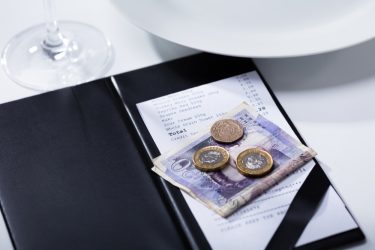
When starting up a hospitality business, it is important to factor in that some customers may choose to tip members of staff.
This poses the question of how tips should be distributed between staff, with the consideration of who will organise the process.
However, ahead of this, you may be wondering how tips are categorised, along with if they are liable to tax.
Whilst some may think that a tip is exempt from taxes, they do in fact class as revenue, thereby categorising them as taxable income.
Therefore, income tax and National Insurance Contributions (NICs) may apply to tips, dependent on the way that the tips are distributed.
Tips paid directly to staff
Should employees receive any cash tips directly from customers to be kept to themselves, they would be responsible for reporting the amount to HM Revenue & Customs (HMRC).
This could impact the employee’s tax code, dependent on the amount earned. The employer would then need to deduct the correct level of tax from the employee’s wages.
However, neither the employee nor employer would be required to pay NICs if the employee reports the amount directly to HMRC.
Tips distributed by the employer
Alternatively, the employer can collect the tips themselves, to then decide how these should be distributed.
For this option, the employer is liable to include the tips when organising PAYE, for the correct amount of tax to be paid, along with NICs.
Using a tronc
When tips are paid via card, they can be easily added together and put into a scheme, known as a tronc, to be distributed by an external party (known as a troncmaster).
With this, the employer has different options for who decides the distribution of tips, which impacts who is responsible for paying the tax, along with NICs.
In the case that the employer decides how the tronc should be divided, they are liable for paying PAYE and NICs.
If someone independent from the business decides how the payments are distributed, the troncmaster will pay PAYE and no NICs are due on the amount (both for employers and employees).
Alternatively, the troncmaster can decide how the money should be divided between employees, in which they are responsible for paying PAYE tax, with no NICs being due.
Are you in the hospitality sector and need more advice? Contact our experts today.

